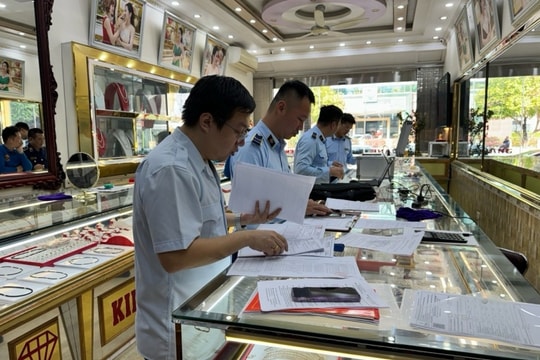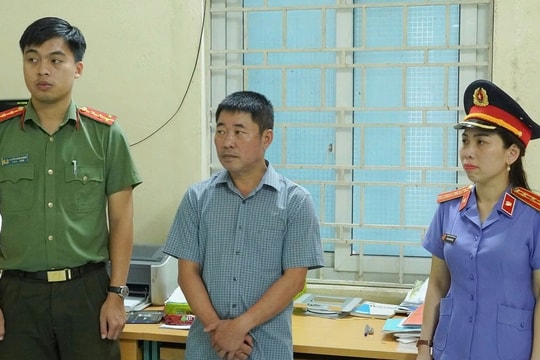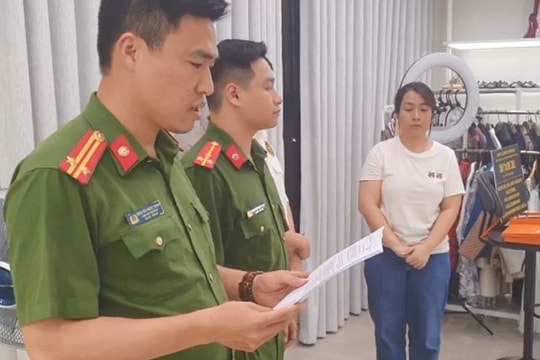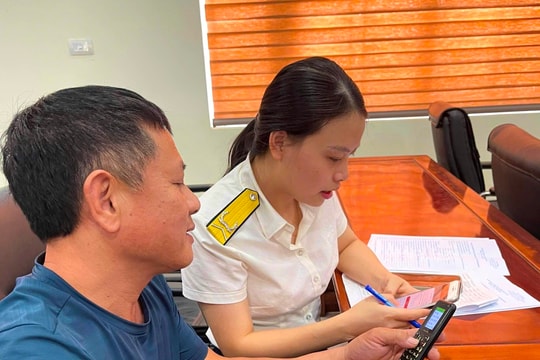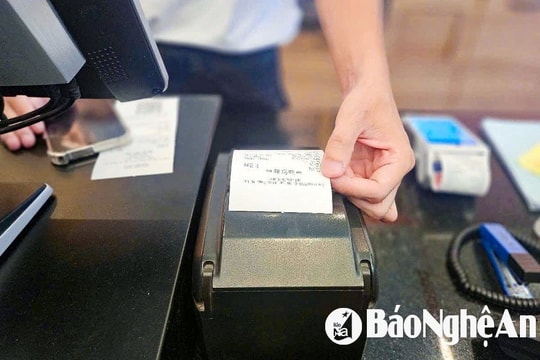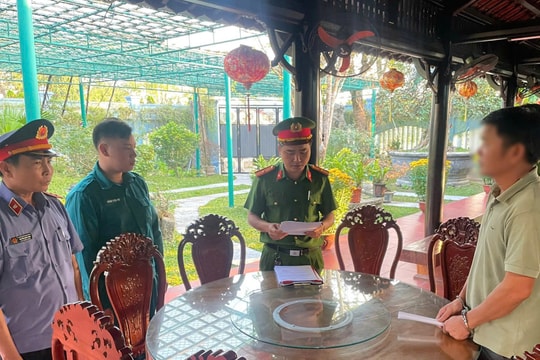Representative of General Department of Taxation: Sufficient basis to collect tax from Metro and BigC
The tax industry affirmed that it will find ways to collect taxes in accordance with regulations for Metro and BigC when transferring brands in Vietnam.
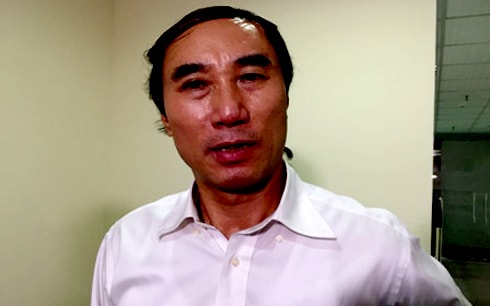 |
Mr. Nguyen Van Phung - Director of the Department of Tax Management for Large Enterprises (General Department of Taxation) discussed tax policy. |
Tax inspection results show that in the past few years, hundreds of foreign-invested enterprises (FDI) across the country have continuously declared losses and evaded taxes, with the amount of money collected and refunded amounting to thousands of billions of VND.
Representative of the General Department of Taxation, Mr. Nguyen Van Phung - Director of the Department of Tax Management for Large Enterprises had discussions related to forms of tax evasion and tax recovery measures of foreign invested enterprises.
PV: Can you tell us what forms of tax evasion foreign invested enterprises often apply in Vietnam recently?
Mr. Nguyen Van Phung:There are two forms of tax evasion and tax avoidance. Although they are two different scopes, they have the same purpose of causing damage to the State Budget (NSNN). In which, tax evasion is an illegal act when a business calculates full tax in the selling price to consumers, but does not declare and pay to the State Budget, or declares less than the amount of tax collected, this is a blatant act of theft and needs to be condemned.
As for tax avoidance, although it is not an illegal act, taxpayers know how to take advantage of loopholes to minimize the amount of tax payable. Enterprises can minimize tax obligations by choosing to invest, which is a legal way to avoid taxes. Vietnam is calling for investment and needs to be wary of countries from tax havens. Because enterprises have received tax incentives in their own countries, if we give tax incentives, we will invisibly give them taxes, so we need to consider the origin of investors.
The third form is tax avoidance, when the enterprise takes full advantage of the initial investment incentive policy but after this period the investor will stop operating. Creating incentives for investors always has a clear goal, if the investor fulfills that goal, it is clear that the investor is genuine. But on the contrary, there are also investors who, after enjoying tax incentives, immediately dissolve, which is a form of taking advantage of incentives to enjoy and avoid taxes, this is uncivilized behavior.
Reporter: Have Metro and BigC taken advantage of Vietnam's tax incentives? And how will tax collection from these enterprises be conducted, sir?
Mr. Nguyen Van Phung:Recently, in our country, there have been two foreign-invested enterprises in the retail sector, Metro and BigC. However, after a period of retail business, these enterprises have had problems. After a period of not paying taxes, the General Department of Taxation suddenly announced that Metro Group had agreed to sell Metro Vietnam to Berli Jucker Group (BJC) of Thailand. BigC will also be transferred.
Of course, the tax department must have many measures to collect taxes from investors. Although this corporation has been complaining about losses for a long time, when the owner of Metro sells the Metro facility and generates income, we must collect taxes.
On the other hand, legal entities operating in Vietnam, although they may be at a loss today, may be profitable in the future. Meanwhile, instead of establishing a completely new enterprise, many investors still buy back the enterprise in a loss-making condition but with a brand name. In the world, this problem is normal, but in Vietnam, it is a completely new form.
The tax sector has realized that all activities related to direct and indirect capital transfers, intellectual property, trade, trademarks, etc. of Metro and BigC will be related to business rights. Instead of having to spend money to develop the first network, investors will buy back loss-making businesses at a more reasonable cost, so the tax sector will have a basis to collect taxes even if those businesses are at a loss.
We must be smart not to miss out on revenue. Even if businesses suffer losses, the tax department must find a way to collect taxes according to regulations. Even if people suffer losses today, they will find a way to collect taxes later, that is a shared responsibility.
PV: From the Panama Papers incident, what ideas does the General Department of Taxation have to better manage tax obligations of foreign enterprises in Vietnam?
Mr. Nguyen Van Phung:We do not know whether FDI enterprises in Vietnam are currently related to the Panama Papers or not, because this paper contains a lot of information, focusing on individuals.
However, this incident also awakens the tax industry to the need to increase access to many sources of information, develop a risk management department and increase information exchange domestically and internationally, share information with tax authorities, grasp information with tax authorities with whom we have signed a double taxation avoidance agreement, to coordinate between tax authorities.
Recently, we have had many tax disputes with several governments of other countries. However, for FDI enterprises investing in Vietnam, the direct and indirect capital transfer of contractors is certainly related to the double taxation avoidance agreement.
Therefore, we must improve the capacity of civil servants, have enough qualifications and capacity to monitor this issue, especially in the context of simplifying procedures, it is still necessary to review the Double Taxation Avoidance Agreement. Any agreement that is not suitable must be renegotiated and any agreement that already exists must be used to the maximum extent possible, fully exploiting the advantages based on existing regulations.
PV: To minimize tax evasion, what solutions does the tax industry need, sir?
Mr. Nguyen Van Phung:To deal with the problem of tax avoidance and tax evasion, many solutions need to be put forward. Tax evasion is not a serious problem, but it is necessary to have solutions to limit and prevent this activity.
The State needs to review the law, evaluate and summarize the practice to see which policies are suitable and which are not, and then propose appropriate incentive policies. At the same time, it is necessary to strengthen coordination between functional agencies such as local authorities, market management, customs, investment supervision and management... and should not leave this to the tax authorities.
For the tax sector, it is necessary to actively strengthen cooperation, coordination, build a risk management team, monitor, and have remote warning information to prevent. Strengthen the inspection of businesses' exploitation when they see that the government is offering high tax incentives. If there are signs of transfer pricing, it is necessary to negotiate a price in advance and offer a high tax rate to create a revenue base for the future.
PV: Thank you!
According to VOV

